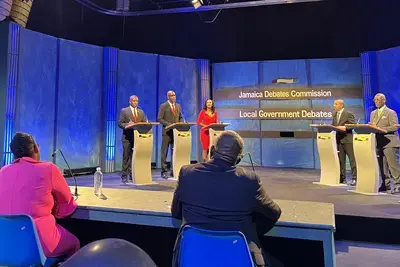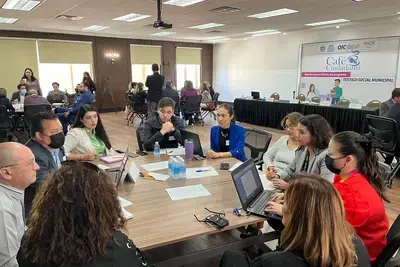
Success Story
Candidate Debates Focus on Issues, Solutions in Peru
Voters in several areas of Peru will head to the polls on Dec. 5 to take part in run-off elections for department presidential candidates who did not achieve the required 30 percent of the vote during first-round elections Oct. 3. Ten departments — or states — will hold runoffs for the top two candidates.
In preparation for the vote, NDI is working with its Peruvian civic partner, Transparencia (Transparency), to organize, record and broadcast debates between the top candidates on television and radio. The goal of the debates is to help citizens become more informed about the candidates’ election platforms and compare their leadership styles. NDI is also collaborating with local partner, Cuidadanos al Dia (CAD) to create a monitoring website where citizens can track how well the newly-elected officials live up to their campaign promises.
In advance of the Oct. 3 municipal and regional elections, NDI, the Peruvian National Elections Board (Jurado Nacional de Elecciones, JNE) and Transparencia, organized debates for 44 department presidential candidates in five of the country’s 25 departments. Department presidents are the highest authority at the department level and serve four-year terms.
The debates were shown numerous times during prime time on local television and in other formats including streaming Internet video. In the department of Lambayeque alone, the debate was broadcast 20 times on radio, television and the Internet. On average, some 47,000 people viewed or listened to the debates in each of the five regions.
Debates were structured around five main topics of particular importance in each region. Themes ranged from economic productivity and tourism to the environment, natural resources and quality of life for children and youth. The moderators, many of them journalists, allowed the candidates to choose a topic from their policy platform. This gave them the opportunity to focus on one topic, differentiating between candidates and providing citizens with information on the proposed policy solutions.
With few exceptions, all major candidates participated in the debates and sought to explain why their parties were the most able to address citizen concerns and promote economic development in their departments. As one media outlet reported, the debates helped citizens prepare to cast their ballots: “voters aren’t the same as before, now that they are informed.”
Watch television coverage of the debates
Prior to the debates, NDI organized a series of dialogues between candidates and civil society organizations so that candidates could get a better sense of the issues that are important to local communities and address them in their election platforms. In collaboration with the United Roundtables in the Fight against Poverty (Mesa de Concertación en la Lucha contra la Pobreza, MCLCP) in different regions, these discussions led to candidates signing commitments to pursue “consensus plans for regional development” should they be elected.
These plans highlight the developmental priorities of the region – from tourism to natural resources to education – and were created by regional governments with input from citizens and civil society organizations in each region. Civil society groups will also monitor the progress of elected officials regarding the priority issues as identified by the MCLCP in each department.
Transparencia and NDI will also collaborate on debates next spring for the presidential election scheduled for April 10, 2011.
Pictured above: Department presidential candidates in San Martín participate in a debate prior to October 2010 regional elections in Peru.
Published November 16, 2010



